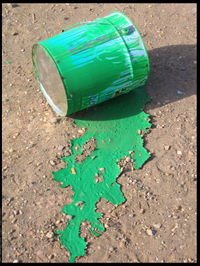Displaying leadership qualities at an early age, Ruth Bader (later Justice Ruth Bader Ginsburg) delivers a sermon as camp rabbi in 1948 at Che-Na-Wah camp in Minerva, N.Y. Photo courtesy of the Collection of the Supreme Court of the United States.
The following is adapted from a biography of J. Robert Oppenheimer. Robert Oppenheimer (April 22, 1904 – February 18, 1967) was an American theoretical physicist and professor of physics at the University of California, Berkeley. He is best known for his role as the scientific director of the Manhattan Project, the World War II effort to develop the first nuclear weapons at the secret Los Alamos National Laboratory in New Mexico. For this reason he is remembered as "The Father of the Atomic Bomb".
http://dailstrug.blogspot.com/2010/03/social-security-document-submission_26.html
 I was an unctuous, repulsively good little boy. My life as a child did not prepare me for the fact that the world is full of cruel and bitter things. My sheltered home life had offered me no normal, healthy way to be a bastard. But it had created an inner toughness, even a physical stoicism, that I myself may not have recognized.
I was an unctuous, repulsively good little boy. My life as a child did not prepare me for the fact that the world is full of cruel and bitter things. My sheltered home life had offered me no normal, healthy way to be a bastard. But it had created an inner toughness, even a physical stoicism, that I myself may not have recognized.Anxious to get me out of doors and among boys my own age, my father decided to send me, at the age of fourteen, to summer camp. For most of the other boys there, Camp Koenig was a mountain paradise of fun and camaraderie. For me, it was an ordeal. Everything about me made me a target for the cruelties young adolescents delight in inflicting on those who are shy, sensitive or different. The other boys soon began calling me "Cutie" and teased me mercilessly. But I refused to fight back. Shunning athletics, I walked the trails, collecting rocks. I made one friend, who still recalls that I was obsessed that summer with the writings of George Eliot. The novelist's major work, Middlemarch, appealed to me greatly, perhaps because it explored so thoroughly a topic I found so mysterious: the life of the inner mind in relation to the making and breaking of human relationships.
Then, however, I made the mistake of writing my parents that I was glad I had come to camp because the other boys were teaching me the facts of life. This prompted a quick visit by my parents, and subsequently the camp director announced a crackdown on the telling of salacious stories. Inevitably, I was fingered for tattling, and so one night I was carried off to the camp icehouse, stripped and knocked about. As a final humiliation, the boys doused my buttocks and genitals with green paint. I was then left naked and locked inside the icehouse for the night. My one friend later said of this incident that I had been "tortured." I suffered this gross degradation in stoic silence; I neither left the camp nor complained. "I don't know how Gary stuck out those remaining weeks," said my friend. "Not many boys would have--or could have--but Gary did. It must have been hell for him." As my friends in later years often discovered, my seemingly brittle and delicate shell actually disguised a stoic personality built of stubborn pride and determination, characteristics that would reappear throughout my life.
Ruth what would you like to do in the world?
ReplyDelete--I would like to become a lawyer.
And, Robert, what would you like to do in the wider world?
--I'd like to design a bomb. A BIG one!! The biggest bomb you could ever imagine!
And, you, Gary, what would you like to do?
ReplyDelete--I would like to become a writer. A writer who exposes the truth -- explosive truths!!
Ruth and Robert: He always did have to be different!
http://dailstrug.blogspot.com/2010/09/la-verite-est-en-marche.html